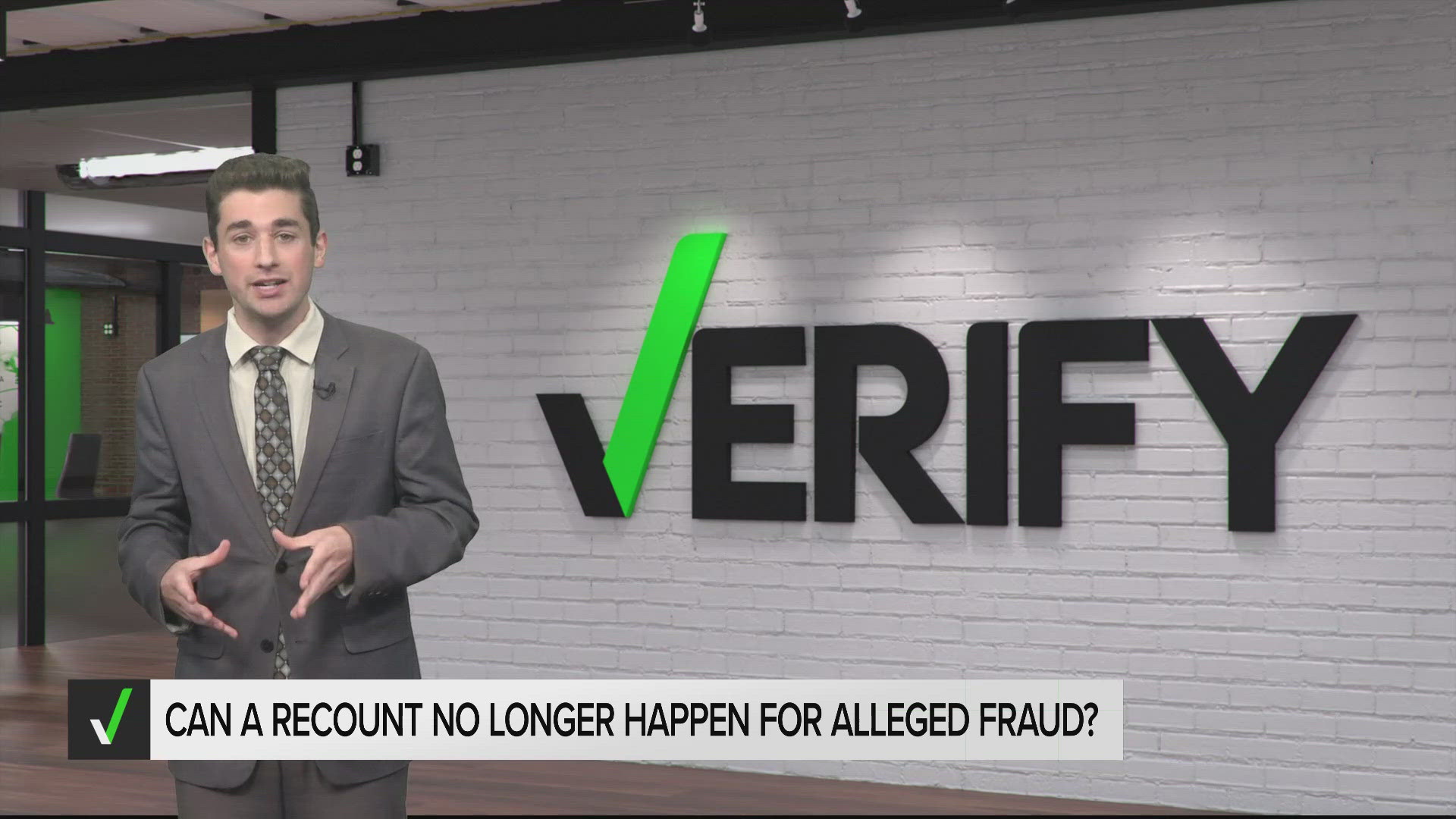GRAND RAPIDS, Mich. — No matter how you look at it, allegations of fraud were a big theme in the aftermath of the 2020 elections.
Now, some are concerned that a new law in Michigan could bar candidates from seeking recounts if they think fraud occurred.
THE QUESTION
Viewer Christopher asks us, "Did Governor Whitmer just sign a bill into law that prohibits recounts on elections based on allegations of fraud?"
So, let's VERIFY!
THE SOURCES
To get an answer, we found Senate Bill 603 that was signed just a few days before Christopher came to us with this question.
Our sources include:
- The full language of SB 603
- State Senators Stephanie Chang (D-Detroit), who authored SB 603
- State Sen. Jeremy Moss (D-Southfield), who co-sponsored the bill and authored its sister bill, SB 604
WHAT WE FOUND
In short, no, this law won't stop a candidate from petitioning for a recount on the basis that they believe there may have been election fraud, according to its sponsors and its language.
But, as always, there's more context to the answer than just one, simple sentence.
This new law makes changes to a pre-existing law that handles petitioning for a recount.
Where some confusion could stem from is when the word "fraud" was eliminated from the pre-existing law in all but one instance.
The law had said that, in a case where someone believes fraud or mistake in the canvass or return of votes kept them from having a reasonable chance of winning, that person could petition for a recount.
In this new version, however, the words "fraud" and "mistake" are often replaced with "error."
Sen. Chang said the change to "error" broadens when someone can file for a recount, and that that still includes belief of potential fraud.
"So, in our many, many work group meetings with had with the secretary of state, county clerks, civic organizations, what we realized was, 'Let's actually make it broader and use the word error so it encaptures everything that we're talking about,' especially because we recognize that, sometimes, a petitioner who wants a recount might not necessarily think that there was fraud or a mistake, but might think that there was some type of broad error that happened," Chang said. "And so we wanted to be able to allow for those people to file for a recount."
So we can VERIFY, no, this law will not stop election recounts in Michigan if the person believes there may have been fraud.
If they feel fraud or another error may have occurred, the petitioner will allege a general "error" in their petition, and if the board of canvassers finds what they feel is good reason during the recount to suspect potential fraud, they will refer it to the local prosecutor or the state attorney general.
However, with this stipulation, this law, Moss explained, was designed to highlight for candidates that allegations of fraud should be taken to law enforcement, and not boards of canvassers that conduct ministerial recounts.
"So, if somebody has a concern of fraud, they should bring that to law enforcement," Moss said. "And if somebody believes that there is a miscount, whether it's due to fraud or any other clerical error, yeah, they have an avenue to bring that to the board of canvassers and, if they're an aggrieved party, have a recount of that election."
One can only petition for a recount, however, if the number of ballots they request to be recounted is greater than the difference between how many votes they received and how many votes the winner received.
It's also important to mention that law won't go into effect until early next year, following the immediate aftermath of this year's elections.
If you'd like something VERIFIED, you can email your question to VERIFY@13onyourside.com.

